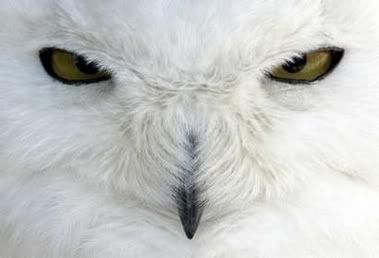Post by ivymoon on Jan 1, 2008 21:45:50 GMT -5
Paganism is an Umbrella Term
Please bear in mind that there are dozens of different traditions that fall under the umbrella title of “Paganism”. While one group may have a certain practice, not everyone will follow the same criteria. Statements made on this site referring to Wiccans and Pagans generally refer to MOST Wiccans and Pagans, with the acknowledgement that not all practices are identical.
Not All Pagans are Wiccans
There are many Witches who are not Wiccans. Some are Pagans, but some consider themselves something else entirely.
Just to make sure everyone’s on the same page, let’s clear up one thing right off the bat: not all Pagans are Wiccans. The term “pagan” (derived from the Latin paganus, which translates roughly to “hick from the sticks”) was originally used to describe people who lived in rural areas. As time progressed and Christianity spread, those same country folk were often the last holdouts clinging to their old religions. Thus, “pagan” came to mean people who didn’t worship the god of Abraham.
In the 1950s, Gerald Gardner brought Wicca to the public, and many contemporary Pagans embraced the practice. Although Wicca itself was founded by Gardner, he based it upon old traditions. However, a lot of Witches and Pagans were perfectly happy to continue practicing their own spiritual path without converting to Wicca.
Therefore, “Pagan” is an umbrella term that includes many different spiritual belief systems – Wicca is just one of many.
Think of it this way:
Christian > Lutheran or Methodist or Jehovah’s Witness
Pagan > Wiccan or Asatru or Dianic or Eclectic Witchcraft
As if that wasn’t confusing enough, there are a few Wiccans who embrace the Christian god as well as their own Wiccan goddess – the Christian Witch movement is alive and well!
What About Magic?
There are a number of people who consider themselves Witches, but who are not necessarily Wiccan or even Pagan. Typically, these are people who use the term "eclectic Witch" to apply to themselves. In many cases, Witchcraft is seen as a skill set in addition to or instead of a religious. A Witch may practice magic in a manner completely separate from their spirituality; in other words, one does not have to interact with the Divine to be a Witch.
paganwiccan.about.com/od/wiccaandpaganismbasics/a/WWPDiffs.htm
Please bear in mind that there are dozens of different traditions that fall under the umbrella title of “Paganism”. While one group may have a certain practice, not everyone will follow the same criteria. Statements made on this site referring to Wiccans and Pagans generally refer to MOST Wiccans and Pagans, with the acknowledgement that not all practices are identical.
Not All Pagans are Wiccans
There are many Witches who are not Wiccans. Some are Pagans, but some consider themselves something else entirely.
Just to make sure everyone’s on the same page, let’s clear up one thing right off the bat: not all Pagans are Wiccans. The term “pagan” (derived from the Latin paganus, which translates roughly to “hick from the sticks”) was originally used to describe people who lived in rural areas. As time progressed and Christianity spread, those same country folk were often the last holdouts clinging to their old religions. Thus, “pagan” came to mean people who didn’t worship the god of Abraham.
In the 1950s, Gerald Gardner brought Wicca to the public, and many contemporary Pagans embraced the practice. Although Wicca itself was founded by Gardner, he based it upon old traditions. However, a lot of Witches and Pagans were perfectly happy to continue practicing their own spiritual path without converting to Wicca.
Therefore, “Pagan” is an umbrella term that includes many different spiritual belief systems – Wicca is just one of many.
Think of it this way:
Christian > Lutheran or Methodist or Jehovah’s Witness
Pagan > Wiccan or Asatru or Dianic or Eclectic Witchcraft
As if that wasn’t confusing enough, there are a few Wiccans who embrace the Christian god as well as their own Wiccan goddess – the Christian Witch movement is alive and well!
What About Magic?
There are a number of people who consider themselves Witches, but who are not necessarily Wiccan or even Pagan. Typically, these are people who use the term "eclectic Witch" to apply to themselves. In many cases, Witchcraft is seen as a skill set in addition to or instead of a religious. A Witch may practice magic in a manner completely separate from their spirituality; in other words, one does not have to interact with the Divine to be a Witch.
paganwiccan.about.com/od/wiccaandpaganismbasics/a/WWPDiffs.htm

